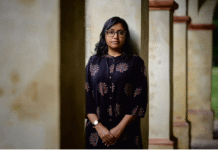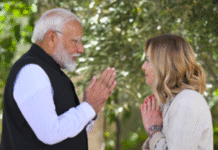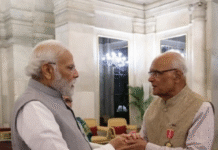BOSTON — The Inner Compass series continues with Chapter 6 of After the Fall, titled “Not an Easy Start”—a reminder that even our most difficult beginnings do not define us, but how we respond to them does.
In this pivotal chapter, Upendra Mishra masterfully shows that transformation doesn’t come from escaping hardship, but from learning how to face it with presence, awareness, and personal responsibility.
The book is available on Amazon. To order your copy, please click here.
As the protagonist Owen continues to rebuild after losing everything, Chapter 6 shifts the focus inward: toward the inner landscape of the mind. No longer blaming the world around him, Owen begins to examine how his thoughts, beliefs, and reactions have shaped his reality. This chapter is not about quick fixes or external wins—it’s about cultivating the internal ground from which real change can grow.
“You’re not responsible for everything that happened to you, but you are responsible for what you do with it now,” Mishra writes. “And that begins with how you think.”
It’s a turning point not just for Owen, but for readers. Mishra doesn’t offer spiritual fluff or motivational clichés—he offers a clear-eyed invitation to take full ownership of one’s inner world. As Owen begins to recognize the impact of his mindset, he starts tending to it with the same care one might give a neglected garden. The past can’t be undone—but the future, Mishra reminds us, is still unwritten.
 This chapter speaks directly to anyone who has ever felt trapped in their own story. It doesn’t deny pain, failure, or fear—it simply refuses to let those be the final words. Owen learns that to change his life, he must first change how he relates to his life. It’s not about control over circumstances, but clarity over what he plants in the soil of his mind.
This chapter speaks directly to anyone who has ever felt trapped in their own story. It doesn’t deny pain, failure, or fear—it simply refuses to let those be the final words. Owen learns that to change his life, he must first change how he relates to his life. It’s not about control over circumstances, but clarity over what he plants in the soil of his mind.
Why This Chapter Matters
Owen’s journey in Chapter 6 mirrors the internal process many of us resist: the quiet, confronting work of self-examination. It asks us to step into the discomfort of our own emotions, not to drown in them, but to learn from them. Because nothing truly shifts on the outside until it does on the inside.
This chapter reminds us: the mind is not just a mirror of our experience—it is the engine of our transformation.
Inner Compass
We don’t stay stuck from lack of knowing—we stay stuck from fear of beginning. The first step isn’t always action, but awareness. Healing starts not when we escape the past, but when we stop running from ourselves.
Awareness comes before action.
We often wait to feel “ready” before we start. But readiness isn’t a feeling—it’s a decision. Begin where you are, even if it’s messy.
You can’t outrun your shadow.
The parts of you that you’ve buried—your guilt, fears, failures—don’t disappear. They show up in your hesitation, your anger, your dreams. Face them. Integrate them.
The shadow is not your enemy—it’s your teacher.
As Carl Jung wrote, “One does not become enlightened by imagining figures of light, but by making darkness conscious.” True growth comes when you stop hiding from the hard parts of yourself.
Old wounds lose power when they’re acknowledged.
The people we left behind, the parts of ourselves we abandoned—closure doesn’t come from forgetting. It comes from having the courage to return, even if just in reflection.
Take responsibility—not to blame yourself, but to empower yourself.
The moment you stop blaming others is the moment you reclaim your creative power. This is where healing begins.
Emotions are information, not threats.
Avoidance keeps you stuck. When you lean into discomfort with curiosity instead of judgment, you access the very wisdom that will move you forward.
You are the gardener of your mind.
As Napoleon Hill and the Upanishads both echo—your thoughts shape your destiny. Whatever you plant—fear or focus, resentment or responsibility—will eventually grow.












